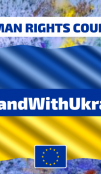EU at World Health Assembly: We must up our game to cope with future health threats

“We need to make the world safer, and we must start now,” says Ambassador Lotte Knudsen, Head of the EU Delegation to the UN in Geneva.
The pandemic shows that we must up our game to cope with health threats in the future. “The various international evaluation panels call for nothing less than a “reset of global health preparedness” and to design a new global health architecture to prevent the reoccurrence of similar crisis in the future,” adds Ambassador Knudsen.
This resolution is an important step in our collective endeavor to draw all the lessons from the pandemic and to improve our systems and tools for prevention, preparedness and response, by building back better. It sets up a Member States Working Group on Strengthening WHO preparedness and response to consider the findings and recommendations of the evaluation panels and to report to the World Health Assembly in May 2022.
https://twitter.com/EU_UNGeneva/status/1396828339739013127?s=20
“Neither individual governments nor the global community can entirely prevent pandemics. But the international community needs to be much better prepared and better aligned in responding to possible future pandemics across the entire cycle of detection, alarm and response. This is why we are committed to work towards an international treaty on pandemics that would promote political commitment at the highest level, by ensuring an all-of-government and whole-of-society approach, and sustained political and financial investment within and among countries, “ underlines Ambassador Knudsen.
Ahead of the World Health Assembly, the EU and a group of countries from across all WHO regions built a large coalition to ensure that WHA74 would pave the way for establishing a process for a Framework Convention on Pandemic Preparedness and Response. The decision to be adopted today by the Assembly will set up a special session of the WHA in November 2021 to focus on this one issue with a view to starting the formal negotiation process immediately thereafter.
The proposal for an international treaty on pandemics was announced by the President of the European Council, Charles Michel, in November 2020 and also highlighted by the G7 leaders in February 2021. In March 2021, leaders from all around the world joined President Charles Michel and the Director-General of the World Health Organization, Dr. Tedros Adhanom Ghebreyesus, in an open call for an international treaty on pandemics, drawing from the lessons learnt during the COVID-19 pandemic.
The pandemic revealed long-standing challenges to respond rapidly and effectively to public health emergencies. It overwhelmed health systems, burned out workforces and brought deep social and economic consequences, worsening inequalities. This crisis underlines the importance of global cohesion and international cooperation. “We want to avoid repeating the mistakes of the past. We now need to harvest the political momentum and take on the responsibility to build a healthy, safe, and fairer world,” appeals EU Ambassador Knudsen.
The EU has been at the forefront of international efforts to tackle the COVID-19 crisis everywhere, helping to mobilise funding in support of the ACT-Accelerator. Team Europe is a top contributor with 4.9 billion to ACT-A, including 2.77 billion to the COVAX Facility. The EU is also the largest exporter of COVID-19 vaccines to the world and will continue its efforts to increase global vaccine production capacities in order to meet global needs.





